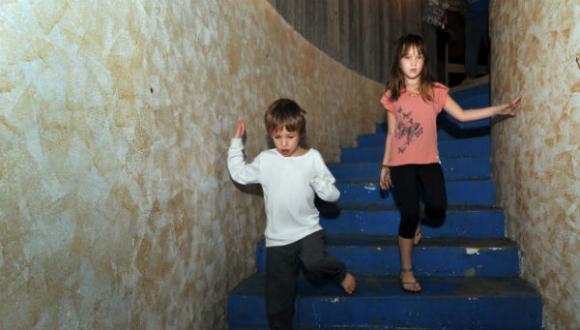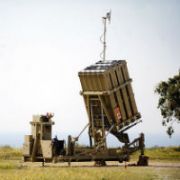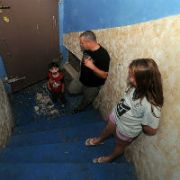Strengthening Children’s Resilience in Times of Conflict
As a result of the conflict in Gaza, many of Israel’s children and youth have been enduring a summer of violence and fear that could lead to a wide range of psychological and psychiatric problems at both the clinical or sub-clinical level. These include distress, anxiety, Obsessive Compulsive Disorder, depression, isolation, eating and sleep disorders, poor academic performance, risk-taking behaviors and substance abuse.
Prof. Michelle Slone of the School of Psychological Sciences, Gershon H. Gordon Faculty of Social Sciences, says that despite the violence, most children are resilient and display coping skills that allow them to go about their everyday lives.
Slone and her team have found that children’s ability to cope during both acute and protracted periods of conflict depends on a number of “resilience” factors that the child may or may not possess. These include individual personality factors such as self-esteem, self-efficacy, and the ability to mobilize support, family factors such as certain parenting styles and community factors such as provision of help and interventions, among others.
Fostering resilience
Based on some individual characteristics proven as resilience factors, Slone and her team developed a school-based intervention program to foster resilience and hardiness among children in the line of fire. Initially implemented a week after Israel’s Cast Lead Operation in December 2008-January 2009, it was given the umbrella name, “the Sderot Program,” and was originally introduced into two schools. The program was adopted and generously supported by Woolf and the late Helene Marmot and members of the French Friends Association of Tel Aviv University.
The intervention program, which is called “Feeling Safe,“ is conducted by specially trained teachers under the supervision of school psychologists and counselors. The teachers attend experiential and theoretical workshops both at the schools and at the University. The program consists of modules, each of which represents a separate resilience factor. For example, in the module dealing with self-mobilization of support, children were asked to list all the people or resources in the community from whom they were able to get help. In this way, the class was able to produce a map of “social support” and discuss how to better utilize the resources available to them. The exercise helped to boost children’s utilization of support systems and a sense of security.
Keeping safe
Another example involved creating a “Red Alert map” showing the closest points of access to shelters in the children’s environment. In a separate self-efficacy building activity, children were asked to prepare a special backpack of goods and resources they would like to have with them during danger periods.
The program has been extended to include 60 ORT schools in the past three or four years with additional funding from the French Friends. Many of the children at these schools come from lower socio-economic backgrounds and display high-risk behaviors.
A controlled study subsequently conducted by Slone found that the program resulted in a marked improvement in children’s coping skills and psychological adjustment. “Not only did the intervention enhance resilience among the children, but we were able to determine which children it would benefit,” says Slone. “This is a completely new approach. Until recently, teachers had little guidance about what to do in conflict situations. During the Second Intifada, for example, children and youth were wandering the streets and crying.”
Slone hopes to implement the program following Operation Protective Edge and sees it as a model that could be adopted by the Ministry of Education on a national scale. “The program can be used as a screening instrument for assessing psychological problems and as a primary prevention model to impart hardiness and resilience to children before and in between episodes of violence,” says Slone.






